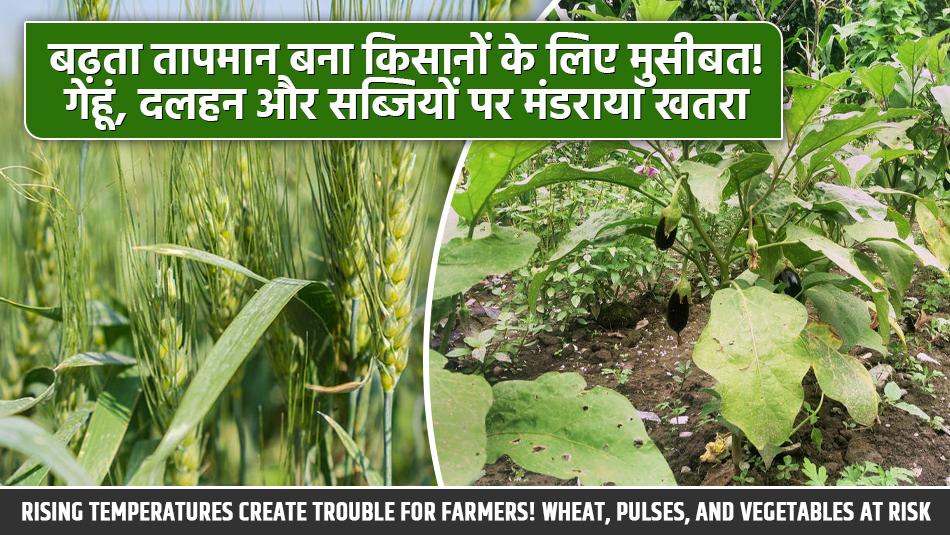
Rising Temperatures in March and Their Impact on Crops:
With the onset of March, temperatures across the country are rising rapidly. In many states, the harvesting of rabi crops is underway, while in some regions, late sowing has delayed the harvesting process. This increasing temperature poses a significant threat to crops like wheat, pulses, and vegetables.
According to agricultural scientists, changes in weather conditions are directly affecting the productivity of rabi crops. Crops such as wheat, chickpeas, lentils, and peas, along with vegetables like tomatoes, okra, and cauliflower, are highly susceptible to extreme heat, which can impact their growth and yield.
For wheat crops, an optimum temperature of 24-26°C during the day and 10-12°C at night is considered ideal. However, due to climate change, temperatures in February and March are now reaching 30°C, leading to premature ripening. This results in lighter grains and lower quality produce. According to the Agriculture Department, wheat production this year could decline by 10-15%.
Wheat Crop Management Tips:
Impact of Rising Temperatures on Pulses:
Pulses like chickpeas, lentils, and peas are particularly vulnerable to extreme heat during the flowering and pod formation stages. High temperatures disrupt pollination, potentially reducing yields by 15-20%.
Protection Measures for Pulses:
Effect on Vegetable Crops and Preventive Measures:
Vegetable crops are highly sensitive to temperature fluctuations. Rising heat increases their water requirements, making frequent irrigation necessary. Excessive heat can also lead to flower and fruit drop, affecting productivity.
Preventive Measures for Vegetables:
March Weather Trends and Agricultural Impact:
According to the Meteorological Department, temperatures in Madhya Pradesh and other states are expected to remain above normal in March, ranging between 21-35°C. The first week of March may see cloudy weather in some areas, while heatwaves are expected in the fourth week.
Specific regions such as Indore, Ujjain, Gwalior, Chambal, Sagar, and Rewa could experience 3-4 days of heatwaves. Light rainfall is also predicted in some districts after March 20.
Expert Advice for Farmers:
Weather scientists predict below-average rainfall and above-normal temperatures this season. Farmers must take preventive measures such as timely irrigation, the use of organic fertilizers, and adopting modern agricultural techniques to protect their crops.
Rising temperatures pose a serious threat to wheat, pulses, and vegetable crops. Farmers must implement timely irrigation, use organic fertilizers, and adopt advanced farming techniques to mitigate the impact. Without proper management, significant crop losses could occur.
Latest Update